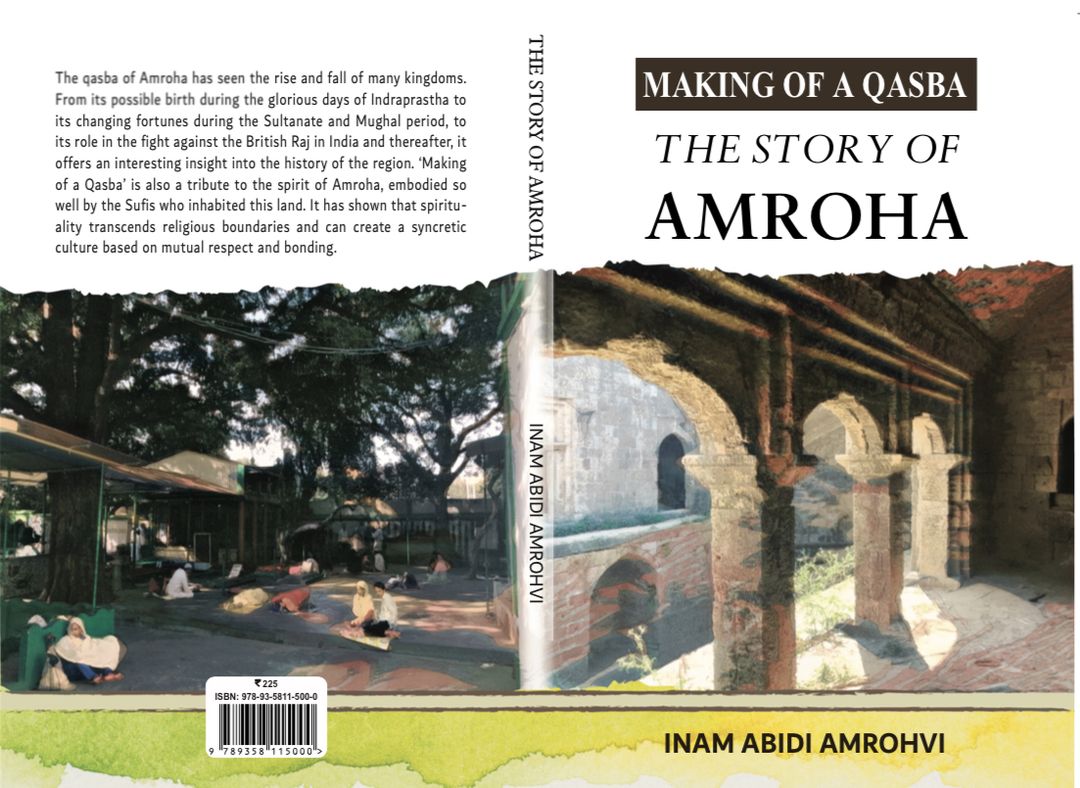
ABOUT THE AUTHOR:- Inam Abidi Amrohvi, is an internet entrepreneur, author, and editor. He writes on a range of topical subjects and has contributed articles to various publications including Hindustan Times, Times of India, Gulf News and News Laundry. Inam has also edited publications like ‘IT Magazine’ and ‘InfoStore’.
Originally from Amroha, his family migrated to Lucknow in the late 1970s.
Inam holds a masters in computer applications, and manages a software consultancy dealing in cloud-based solutions.
MT: Please introduce yourself?
AUTHOR: I’m an internet entrepreneur who loves to write.
MT: What made you come into writing? AUTHOR: My father was very fond of reading and even set up a reading club with his friends. Every week they assembled at one house and books were distributed to each family for reading. This early family environment inspired me to start reading and as I delved more into novels, I realised that creative writing came naturally to me.
MT: Why did you select to write on Amroha?AUTHOR: Amroha is my ancestral town. The idea of first writing a book on Amroha crossed my mind in 2015 while researching for an article on the city. It was supposed to be a travelogue of sorts to introduce my kids to the city. The realisation soon came that there was no comprehensive English account of the city for the mainstream audience. I started working on it several years later.
MT: Tell us briefly about the book?
AUTHOR: The book is broadly divided into three parts viz., the political and social history of the city, a few prominent personalities of the city, and some cultural aspects.
MT: What do you feel is your best and most interesting chapter in the book? One that readers should not miss.
AUTHOR: I’ve tried to write a concise account so that every chapter is short and contains interesting information. Writing about Amroha’s connection to Gandhi’s civil disobedience and the city’s luminaries was the most fulfilling part.
MT: What challenges did you face while writing and publishing the book and how did you overcome them?
AUTHOR: The biggest challenge was reading the Urdu and Persian text and extracting relevant bits of information. Thankfully I found help at home (especially my wife) and from friends. For first-time authors, publishing is a tough task. In the end it all bottles down to how well connected you are.
MT: Are you planning to write any book in the future? If yes, what will be the topic?
AUTHOR: Currently only enjoying the positive reception to my book. If I do write another book, it’ll be a historical account.
MT: What future do you see for reading, especially books, in the era of virtual reality and mobile phones?
AUTHOR: I see a short format of books coexisting with the digital media.
MT: Any suggestions for budding authors?
AUTHOR: Write for others. People pick up a book only when there’s something of interest to them. An original idea rarely fails.
